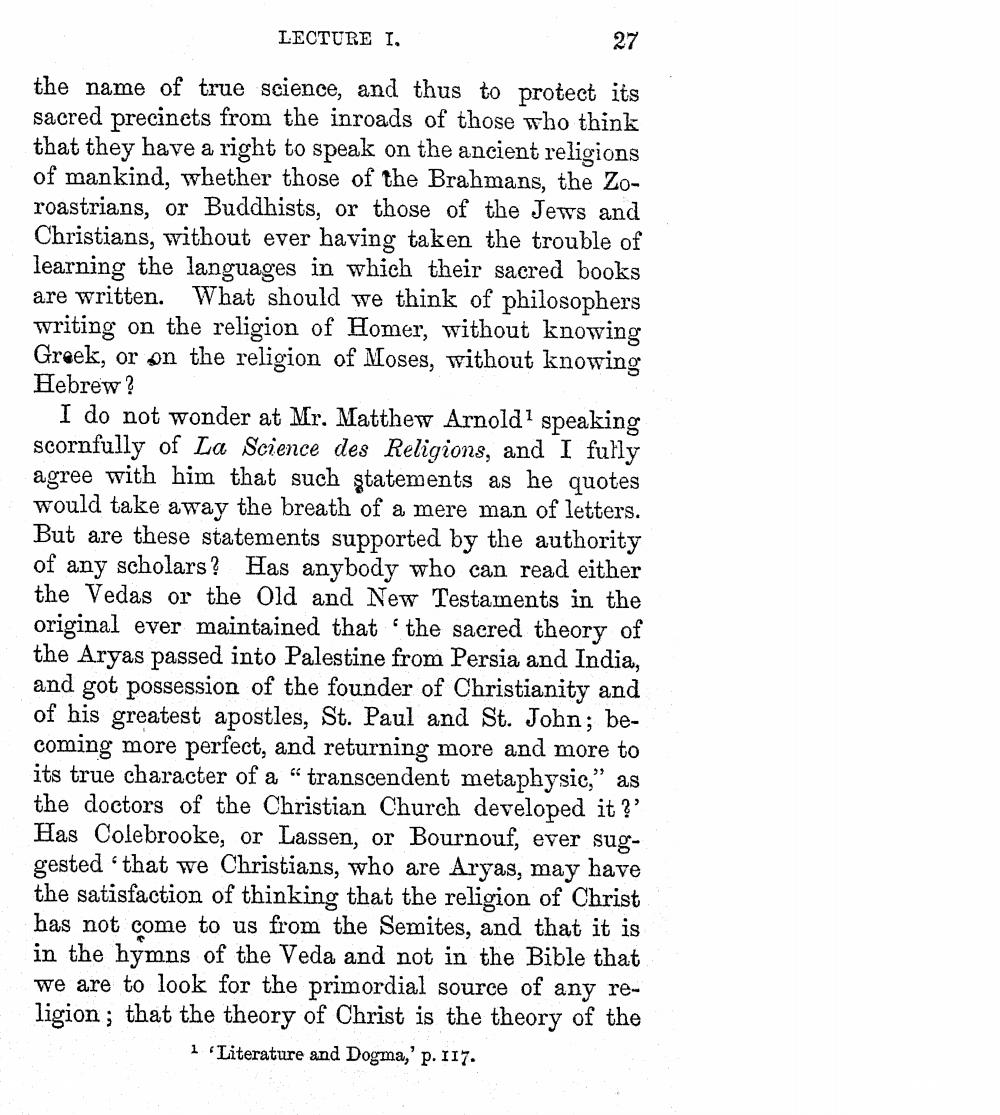________________
LECTURE I.
the name of true science, and thus to protect its sacred precincts from the inroads of those who think that they have a right to speak on the ancient religions of mankind, whether those of the Brahmans, the Zoroastrians, or Buddhists, or those of the Jews and Christians, without ever having taken the trouble of learning the languages in which their sacred books are written. What should we think of philosophers writing on the religion of Homer, without knowing Greek, or on the religion of Moses, without knowing Hebrew ?
I do not wonder at Mr. Matthew Arnold1 speaking scornfully of La Science des Religions, and I fully agree with him that such statements as he quotes would take away the breath of a mere man of letters. But are these statements supported by the authority of any scholars? Has anybody who can read either the Vedas or the Old and New Testaments in the original ever maintained that the sacred theory of the Aryas passed into Palestine from Persia and India, and got possession of the founder of Christianity and of his greatest apostles, St. Paul and St. John; becoming more perfect, and returning more and more to its true character of a “transcendent metaphysic," as the doctors of the Christian Church developed it?' Has Colebrooke, or Lassen, or Bournouf, ever suggested that we Christians, who are Aryas, may have the satisfaction of thinking that the religion of Christ has not come to us from the Semites, and that it is in the hymns of the Veda and not in the Bible that we are to look for the primordial source of any religion ; that the theory of Christ is the theory of the
1 Literature and Dogma,' p. 117.




